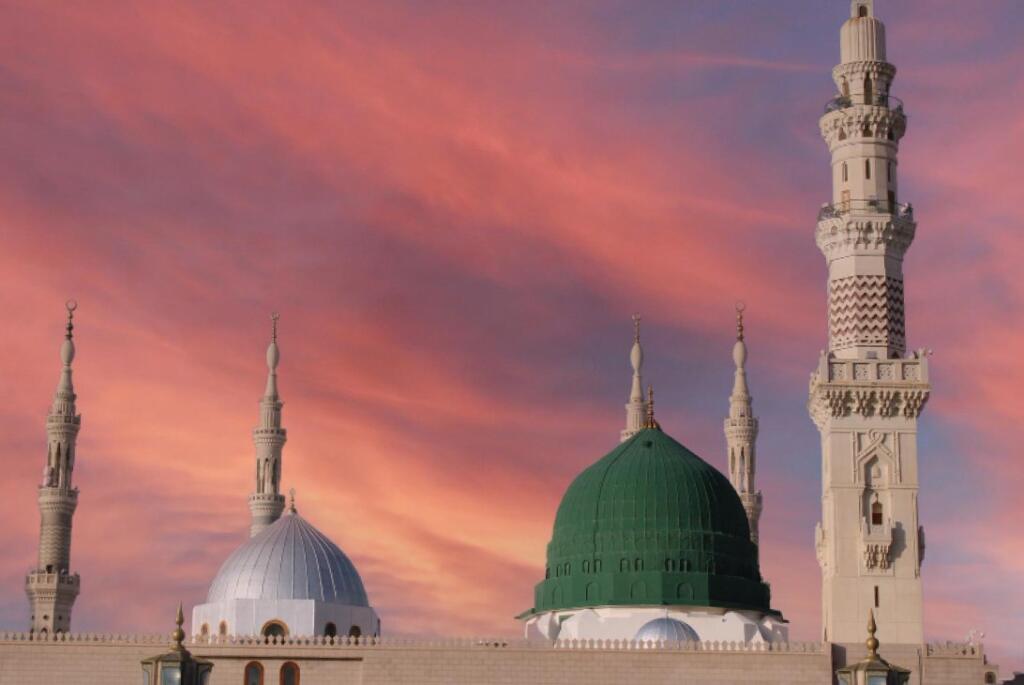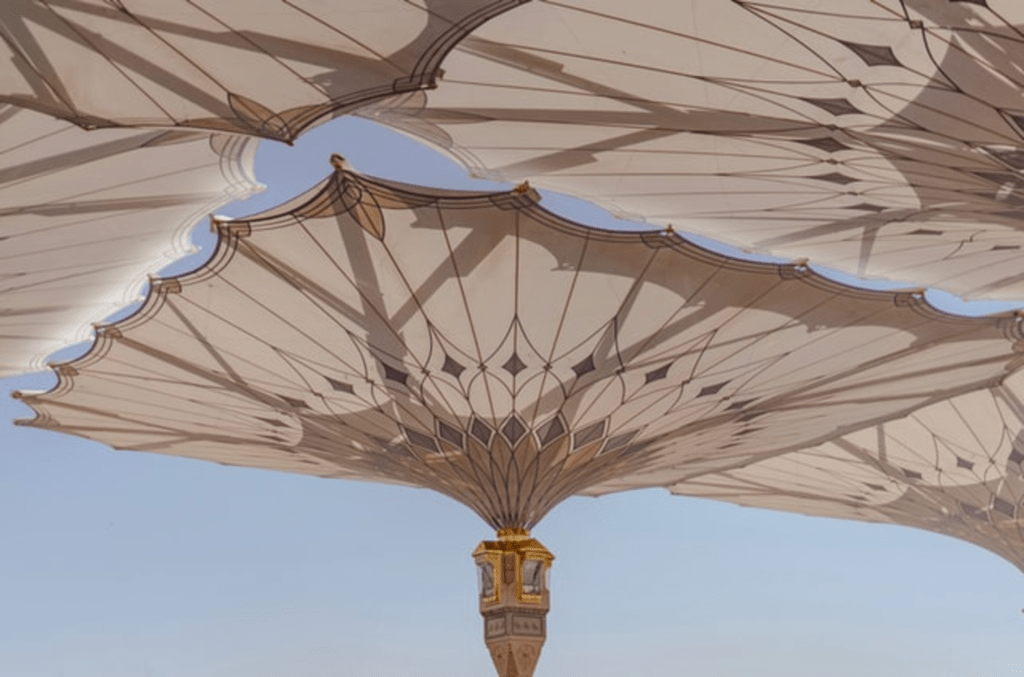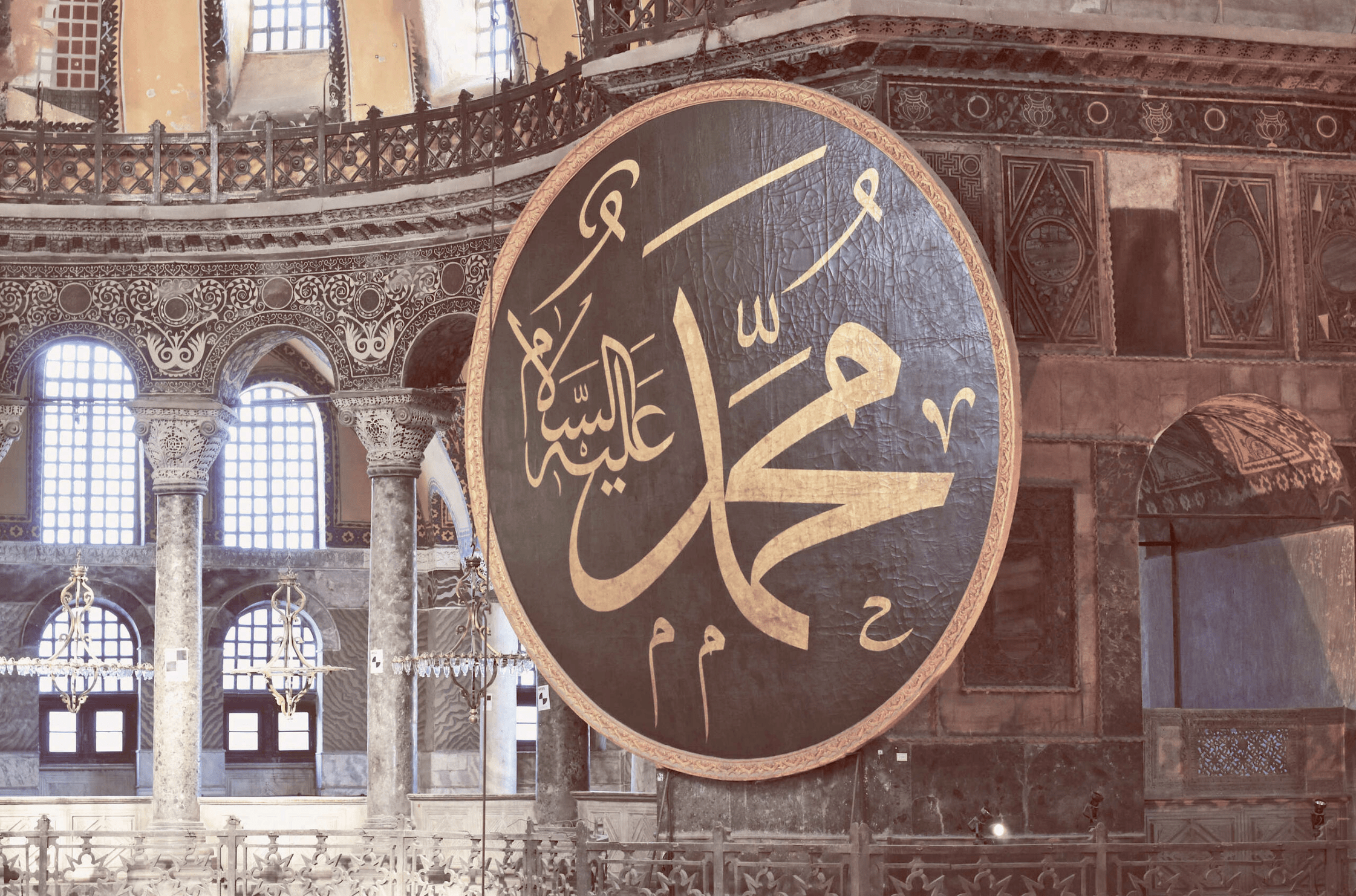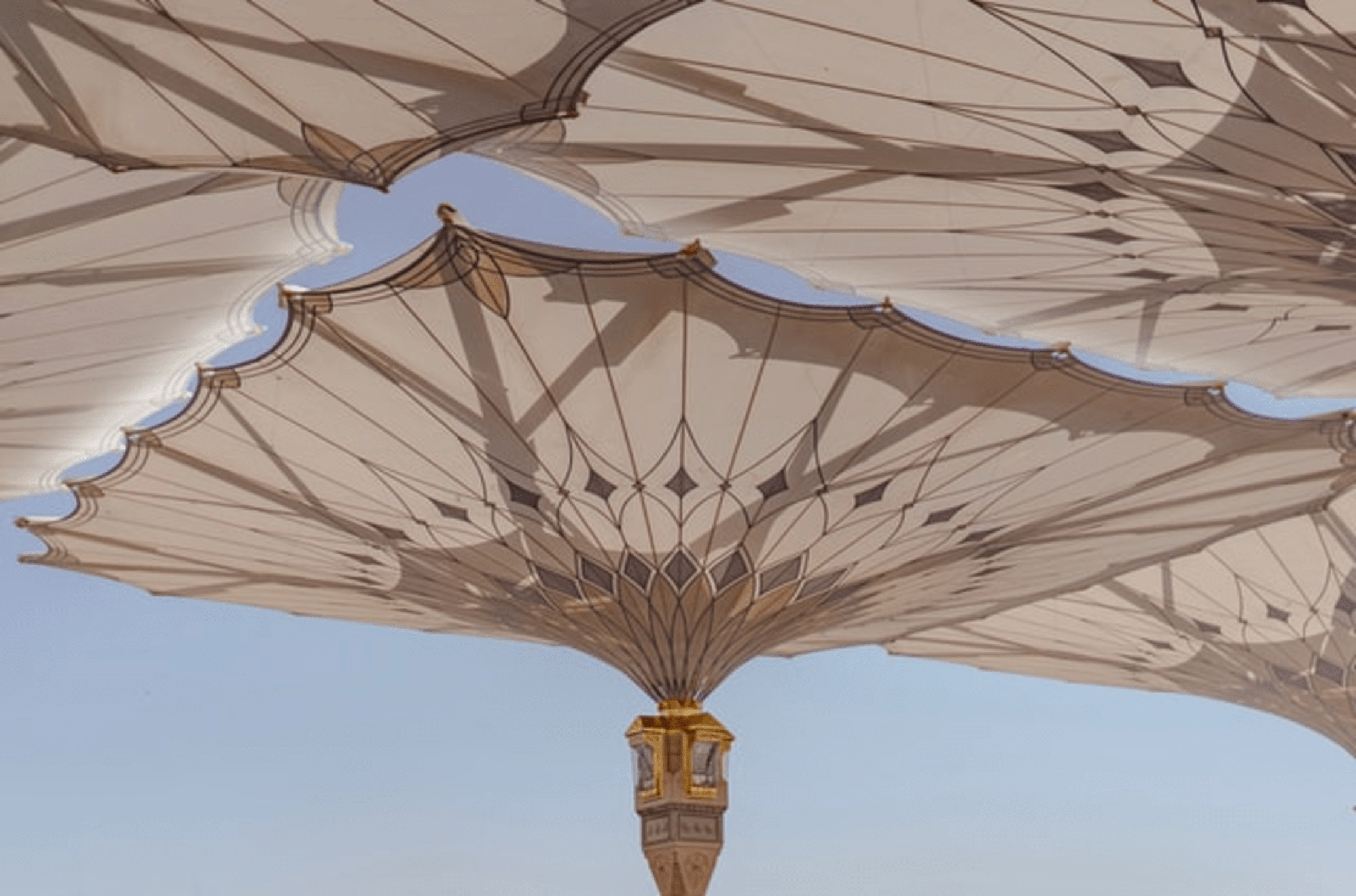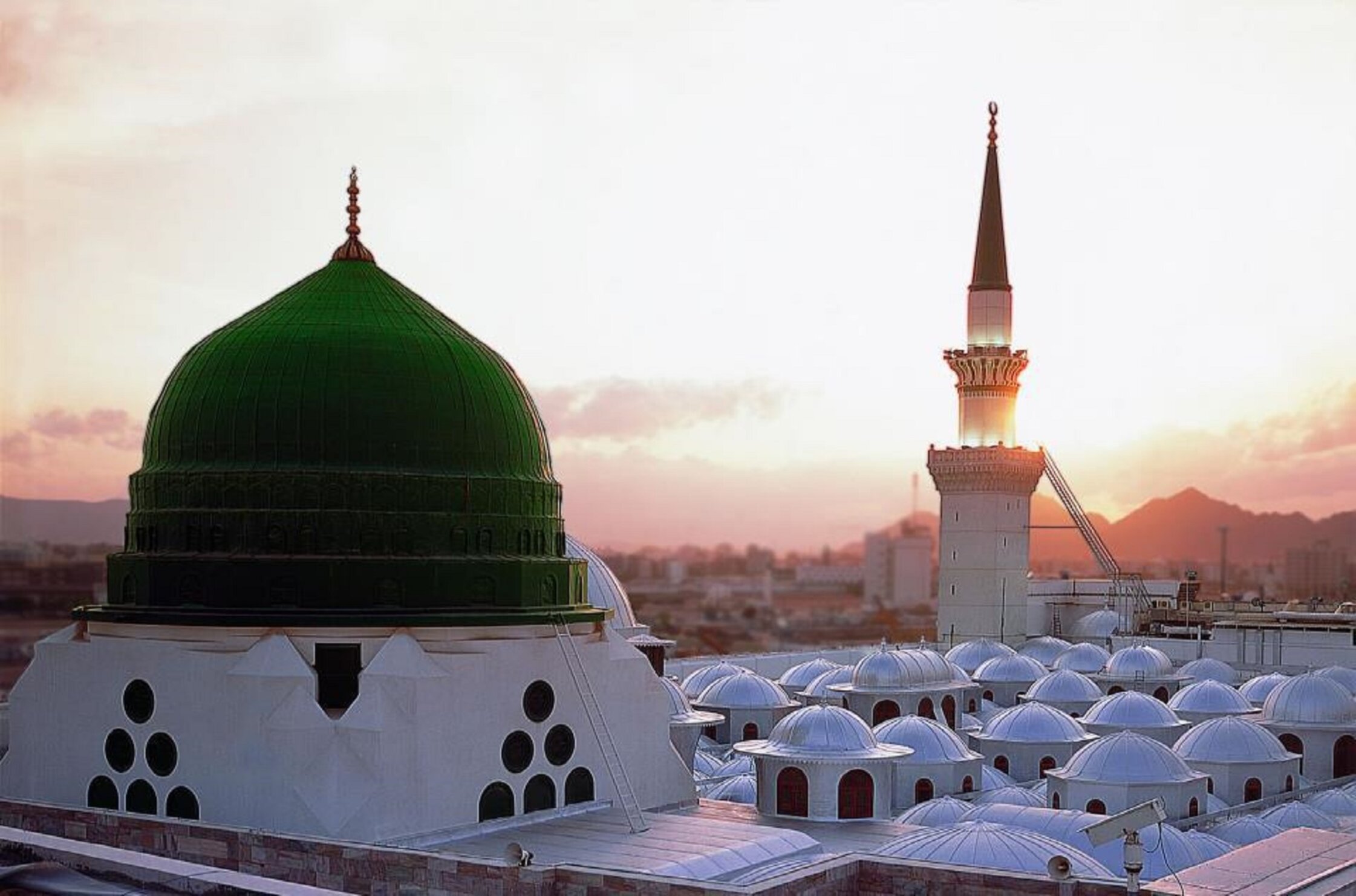Invoking ṣalāh on the Messenger of Allah ﷺ is amongst the most fruitful acts you can occupy yourself with.
What Does ‘Salah’ Mean?
Not to be confused with the 5 daily prayers, ṣalāh (and its plural ṣalawāt) refer to the servant asking Allah (subḥānahū wa taʿālā) to send mercy upon the Messenger ﷺ and praise him amongst the loftiest assembly of angels.
Often, ṣalāh is translated as ‘salutation’ or ‘blessings’. However, the word ‘ṣalāh’ encompasses more than that.
Ibn Ḥajar (raḥimahullāh) writes: “Salāh also means ‘honour him’ i.e. honour him in the world by elevating his mention, granting victory to his dīn and preserving his sharī‘ah; and honour him in the hereafter by rewarding him abundantly, accepting his intercession on behalf of his ummah and granting him the loftiest station of glory (maqām mahmūd).”
We should invoke ṣalāh on our beloved Messenger of Allah ﷺ as frequently as possible. There are however, certain occasions in which we should make a concerted effort to increase our ṣalawāt, as they have been prescribed by the Messenger of Allah ﷺ. These include:
After the Tashahhud in Salah
ʿAbd al-Raḥmān ibn Abī Laylā (raḥimahullāh) said: “Kaʿb ibn ʿUjrah (raḍiy Allāhu ʿanhu) met me and said: ‘Shall I not give you a gift I received from the Messenger of Allah ﷺ?’ I replied: ‘Yes of course, gift it to me.’ So he said: ‘We asked the Messenger of Allah ﷺ: “O Messenger of Allah ﷺ, how should we invoke ṣalāh upon you, the members of the family, for Allah has taught us how to send salām upon you?” He ﷺ replied: “Say:
اَللّٰهُمَّ صَلِّ عَلَىٰ مُحَمَّدٍ ، وَعَلَىٰ آلِ مُحَمَّدٍ ، كَمَا صَلَّيْتَ عَلَىٰ إِبْرَاهِيْمَ وَعَلَىٰ آلِ إِبْرَاهِيْمَ إِنَّكَ حَمِيْدٌ مَّجِيْدٌ
اَللّٰهُمَّ بَارِكْ عَلَىٰ مُحَمَّدٍ ، وَعَلَىٰ آلِ مُحَمَّدٍ ، كَمَا بَارَكْتَ عَلَىٰ إِبْرَاهِيْمَ وَعَلَىٰ آلِ إِبْرَاهِيْمَ ، إِنَّكَ حَمِيْدٌ مَّجِيْدٌ
“O Allah, honour and have mercy upon Muḥammad and the family of Muḥammad as You have honoured and had mercy upon Ibrāhīm and the family of Ibrāhīm: indeed, You are the Most Praiseworthy, the Most Glorious. O Allah, bless Muhammad and the family of Muhammad, as You blessed Ibrāhīm and the family of Ibrāhīm: indeed, You are the Most Praiseworthy, the Most Glorious.” (Bukhārī 3370)
After Adhan
The Messenger of Allah ﷺ said: “When you hear the mu’adhdhin calling for the prayer, repeat his words then invoke ṣalāh upon me. The one who invokes ṣalāh upon me once, Allah will bestow ṣalāh upon him ten times…” (Muslim)
When Making Duʿa
The Messenger of Allah ﷺ once heard a person making duʿā’ during prayer. He did not glorify Allah nor invoke ṣalāh upon the Messenger of Allah ﷺ. The Messenger of Allah ﷺ said: “He was too hasty.”
He called him and said: “When one of you makes duʿā’, he should start off with praising and glorifying His Lord, and should then invoke ṣalāh on the Messenger of Allah ﷺ. He should then make duʿā’ for whatever he wishes.” (Abū Dāwūd)
When Facing Difficulties
Ubayy (raḍiy Allāhu ʿanhu) asked the Prophet ﷺ: “O Messenger of Allah ﷺ, I invoke ṣalāh upon you often. How much of my supplications should be dedicated for you?”
He ﷺ replied: “As much as you wish.”
Ubayy asked: “A fourth?”
The Prophet ﷺ replied: “As you wish, but the more, the better.”
Ubayy asked: “A half?”
The Prophet replied: “As you wish, but the more, the better.”
Ubayy asked: “Two-thirds?”
The Prophet ﷺ replied: “As you wish, but the more, the better.”
Ubayy asked: “Should I dedicate all of my supplications for you?”
The Prophet: ﷺ replied: “In that case, your needs will be sufficed and your sins will be forgiven.” (Tirmidhī)
Upon Gathering and Before Dispersing
The Messenger of Allah ﷺ said: “No people sit in a gathering without remembering Allah, or invoking ṣalāh upon their Prophet, except that they will earn the displeasure of Allah. If Allah wills, He will punish them. If He wills, He will forgive them.” (Tirmidhī)
Upon Entering & Leaving the Masjid
The Messenger of Allah ﷺ said: “When one of you enters the Masjid, he should invoke ṣalāh upon the Messenger of Allah ﷺ … and when he leaves, he should invoke ṣalāh upon the Messenger of Allah ﷺ.” (Ibn Mājah)
In the Morning & Evening
The Messenger of Allah ﷺ said: “Whoever invokes ṣalāh upon me 10 times in the morning and 10 times in the evening will receive my intercession.” (Ṭabarānī)
When the Messenger of Allah ﷺ is Mentioned
The Messenger of Allah ﷺ said: “The miser is the one in whose presence I am mentioned, but he does not invoke ṣalāh upon me.” (Tirmidhī)
The Messenger of Allah ﷺ said: “May the face be dusted of a man (i.e. may he be disgraced) in whose presence I am mentioned but he does not invoke ṣalāh upon me.” (Tirmidhī)
The Messenger of Allah ﷺ ascended the pulpit and he said: “Āmīn, āmīn, āmīn.” It was said: “O Messenger of Allah, you ascended the pulpit and said āmīn, āmīn, āmīn.” The Prophet ﷺ said: “Indeed Jibrīl (ʿalayhis-salām) came to me and he said: ‘Whoever reaches the month of Ramaḍān and he is not forgiven, then he will enter Hell-fire and Allah will cast him far away – say āmīn!’ So I said āmīn. ‘Whoever lives to see one or both of his parents in their old age, and does not honour them and then dies, he will enter Hell-fire and Allah will cast him far away – say āmīn!’ So I said āmīn. ‘Whoever has your name mentioned in his presence and he does not send ṣalāh upon you and then dies, he will enter Hell-fire and Allah will cast him far away – say āmīn!’ So I said āmīn.” (Ibn Ḥibbān)
On the Day & Night of Jumuʿah
The Messenger of Allah ﷺ said: “The best of your days is Jumuʿah. On this day Ādam (ʿalayhis-salām) was created; on this day he died; on this day the Trumpet will be blown; and on this day the creation will fall down and die. So invoke abundant ṣalāh upon me, for your ṣalāh will be presented to me.” They asked: “O Messenger of Allah, how will our ṣalāh upon you be presented to you when you have turned to dust?” He replied: “Allah has forbidden the earth to consume the bodies of the Prophets.” (Abū Dāwūd)
‘The Messenger of Allah ﷺ is the leader of all mankind and Jumu’ah is the leader of all days. Thus, sending salah upon him on this day has a distinction and superiority which no other day has.’ (Ibn al-Qayyim)
The Messenger of Allah ﷺ said: “Increase your ṣalāh upon me on the day and night of Jumuʿah. Whoever invoke ṣalāh upon me once, Allah will bestow ṣalāh upon him ten times.” (Nasa’ī)
Aim for 1k
ʿAbdullāh b. Masʿūd (raḍiy Allāhu ʿanhu) said: “O Zayd b. Wahb, do not let Jumuʿah pass without invoking ṣalawāt on the Prophet ﷺ 1,000 times.” (Jalā’ al-Afhām)

